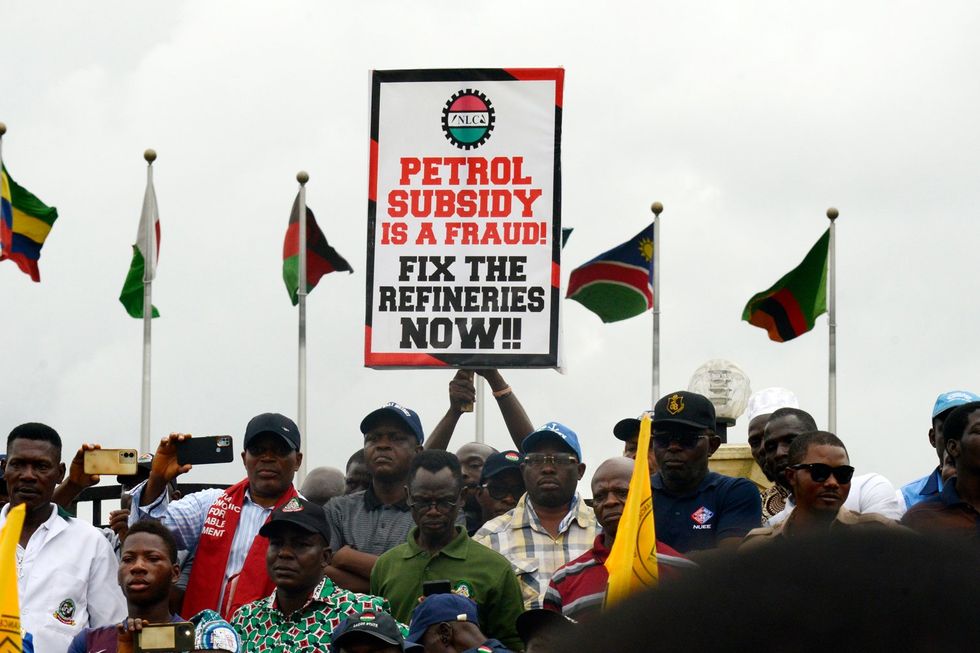
rewrite this content and keep HTML tags 
Nigeria’s largest workers’ unions are poised to initiate an indefinite strike commencing next week to voice their vehement opposition to the ongoing cost of living crisis. This crisis has been exacerbated by the government’s recent decision to eliminate a popular yet financially burdensome petrol subsidy, according to union leaders.
The National Labour Congress (NLC) and the Trade Union Congress (TUC), both behemoth entities in the Nigerian labor landscape, jointly announced on Tuesday their intention to kick off the strike action on October 3rd. The National Labour Congress encompasses unions from diverse sectors, ranging from healthcare professionals to road workers and printers, while the Trade Union Congress represents a wide spectrum of professionals, including senior bank employees and high school educators.
The unions issued a resolute statement, declaring, “It’s going to be a total shutdown… until the government meets the demands of Nigerian workers, and indeed, the Nigerian masses.”
The crux of the unions’ grievances revolves around what they perceive as the Federal Government’s reluctance to engage meaningfully and reach agreements with organized labor regarding the adverse repercussions stemming from the regrettable surge in petrol prices. This surge, a consequence of the subsidy’s removal, has inflicted considerable hardship upon Nigerian workers and the general populace.
For several months now, food and commodity prices have witnessed an upward trajectory, primarily due to the resultant increase in production and transportation costs linked to the escalated fuel costs. Concurrently, Nigeria’s currency, the naira, has experienced a significant depreciation against the US dollar, with an average exchange rate of 780 naira to $1. This depreciation has further exacerbated the cost of imports, deepening the economic woes faced by the nation.
The government has implored the unions to sustain negotiations rather than resorting to strikes, asserting that such actions would inflict severe damage on an economy already grappling with double-digit inflation, foreign currency shortages, and diminished oil production. President Bola Tinubu, in staunch defense of his administration’s two major reforms—subsidy removal and foreign exchange controls—has maintained that although these measures may entail short-term hardships, they are indispensable for attracting investment and bolstering government finances.
Tinubu’s administration acknowledges the challenges posed by these reforms and claims to have allocated funds to state governments to mitigate their impact. Additional measures, including the provision of alternative transportation options and small business loans, have also been instituted.
In the past, Nigerian unions have resorted to threats of strikes or actual strike actions, only to eventually return to the negotiating table. It remains uncertain to what extent next week’s industrial action will resonate with the populace and the government.











